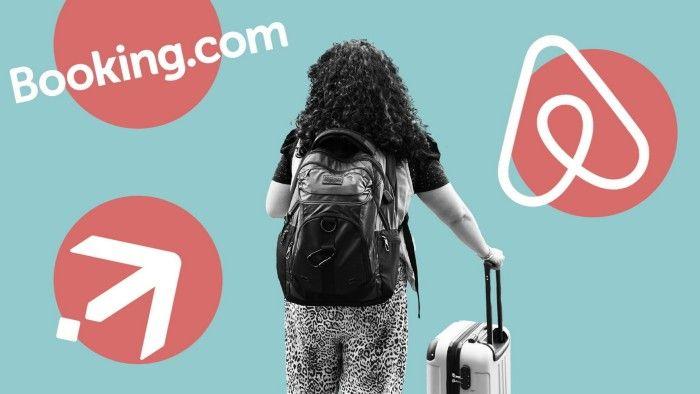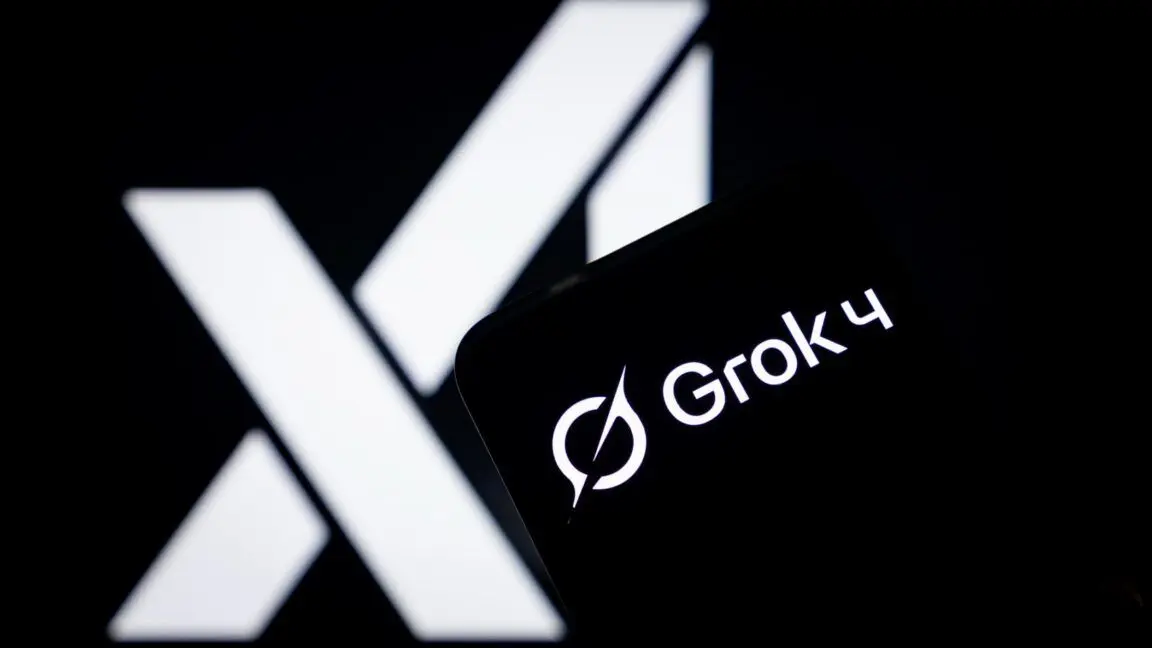Airbnb CEO Brian Chesky Outlines AI Strategy, Emphasizing Customer Service and Search Innovations
2 Sources
2 Sources
[1]
AI agents aren't the 'new Google,' says Airbnb CEO | TechCrunch
After a second-quarter earnings beat, Airbnb CEO Brian Chesky shared his thoughts on the company's AI strategy, cautioning investors that AI chatbots can't yet be thought of as the "new Google." That is, AI chatbots, while potentially driving new leads to the travel and services business, aren't entirely a replacement for the referrals that the dominant search engine brings. At least not at this time. "I think we're still kind of feeling out the space," the exec told investors on the Q2 earnings call. "The thing I want to caution is I don't think that AI agents -- I don't think we should think of chatbots like Google -- I don't think we should think of them as the 'new Google' yet." This, Chesky explained, is because AI models aren't "proprietary." "We also have to remember that the model powering ChatGPT is not proprietary. It's not exclusive to ChatGPT. We -- Airbnb -- can also use the API, and there are other models that we can use," he said. Painting a broader picture of the AI landscape, Chesky said that in addition to chatbots and other AI agents, there will be custom-built startups designed for specific applications, as well as other incumbents that have made the shift to AI. "One of the things we've noticed is it's not enough to just have ... the best model. You have to be able to tune the model and build a custom interface for the right application. And I think that's the key," he said. The company told investors it will look to take advantage of AI in a number of ways. Airbnb shared during the call that its AI customer service agent in the U.S. reduced the percentage of guests contacting a human agent by 15%, for instance. This was actually harder than tackling the lower-hanging fruit involving travel planning and inspiration, Chesky said, because AI agents performing customer service can't hallucinate. They have to be able to be accurate and helpful at all times. Airbnb's customer service agent was built using 13 different models and trained on tens of thousands of conversations, and is currently available in English in the U.S. This year, Airbnb will roll it out to more languages, and next year, it will become more personalized and agentic. That means it would be able to understand if someone reaches out to cancel a reservation; it would not only be able to tell them how to do so, but it could also do it for them. The agent could also help plan and book trips. Plus, AI will come to Airbnb's search next year, the CEO said. However, the company has not fully fleshed out its plans for working with third-party AI agents, although it's considering it. Users still need an Airbnb account to make a booking. Because of this, Chesky doesn't think agentic AI would turn its business into a commodity, the way that booking flights has become. Instead, he sees AI as "potentially interesting lead generation" for the company. "... I think the key thing is going to be for us to lead and become the first place for people to book travel on Airbnb. As far as whether or not we integrate with AI agents, I think that's something that we're certainly open to," he said. Airbnb beat analysts' expectations in the quarter with revenue of $3.1 billion and earnings per share of $1.03, but the stock dropped on its forecast of slower growth in the second half of the year.
[2]
Airbnb CEO Brian Chesky Says This Is His Company's 'Hardest Problem'
Airbnb is currently starting by including AI in customer service, with plans to expand to searching and booking travel. Airbnb is prioritizing AI, starting with customer service, and making changes that will affect everything from how guests book properties to how hosts make their listings more competitive. In Airbnb's second-quarter earnings report on Wednesday, the vacation rental company reported that it beat expectations for revenue, which grew by 13% from the same period last year to $3.1 billion. CEO Brian Chesky predicted that Airbnb would become "an AI-first application" over the next few years in an earnings call following the report. "I think you can't do travel planning without AI going forward," Chesky said on the call. "We've chosen a very specific way to approach AI." Related: Airbnb's New 'Icons' Cost Less Than $100 Per Night, Including the House from 'Up' and Prince's 'Purple Rain' On the call, Chesky said that some companies have chosen to incorporate AI into travel planning and inspiration, which he deemed "the lower stakes part of travel." Airbnb, on the other hand, has started with what Chesky called "the hardest problem," which is the task of customer service AI helping with travel plans. "Customer service is the hardest problem because the stakes are high," Chesky explained on the call. He pointed out that users need answers quickly, and the AI has to be accurate when handling tasks like canceling a reservation. To tackle customer service, Chesky said Airbnb created a custom AI agent based on tens of thousands of conversations. It works like this: When users reach out to the AI agent to cancel a reservation, it not only knows how to do it but also taps into specific knowledge about which reservation the user wants to cancel. In April, the company quietly started deploying the AI bot in the U.S. in English. Chesky said on Wednesday's call that 15% fewer users need to talk to a human customer service representative after releasing the bot. The company plans to expand the agent to more languages this year and infuse it with advanced features, such as the ability to search and help users plan and book their next trip. For hosts, Airbnb is exploring different ways to display pricing. In May, the company announced a new calendar for hosts with better pricing suggestions to help optimize the competitiveness of their listings. Related: 'I Can't Get Everyone to Move Here': Why Airbnb's CEO Is Sticking With a Once-a-Month Hybrid Schedule Customer service is just one way Airbnb is going to become an AI-first app over the next few years. The company is also going to bring AI to travel search next year, Chesky stated on the call. Airbnb has undergone a number of changes recently. In May, the company announced a revamped app with the option to book "Services" or experiences like massages, personal training, and beauty services. In the same month, Airbnb also introduced group messaging, expanding who can interact with an Airbnb host, and shared wishlists for users to bookmark their favorite rentals together. Airbnb had more than five million hosts and 1.5 billion guest check-ins as of 2024, according to Statista.
Share
Share
Copy Link
Airbnb CEO Brian Chesky discusses the company's AI strategy, focusing on customer service improvements and future search capabilities, while cautioning against viewing AI agents as immediate replacements for traditional search engines.
Airbnb's AI Strategy: Focusing on Customer Service and Search
Airbnb CEO Brian Chesky has outlined the company's approach to artificial intelligence (AI), emphasizing its potential to transform the travel industry while cautioning against overhyping its current capabilities. During Airbnb's second-quarter earnings call, Chesky shared insights into the company's AI initiatives and their impact on customer service and future travel planning
1
.
Source: TechCrunch
AI in Customer Service: The "Hardest Problem"
Contrary to many companies that have focused on using AI for travel planning and inspiration, Airbnb has chosen to tackle what Chesky calls "the hardest problem" - customer service. The company has developed a custom AI agent trained on tens of thousands of conversations to handle complex tasks such as reservation cancellations
2
."Customer service is the hardest problem because the stakes are high," Chesky explained, highlighting the need for quick and accurate responses when dealing with users' travel plans
2
.The AI-powered customer service agent, currently available in English in the U.S., has already shown promising results:
- 15% reduction in guests needing to contact human agents
1
- Plans to expand to more languages this year
1
- Future capabilities to include personalized assistance and direct action on behalf of users
1
Expanding AI Capabilities
Airbnb's AI ambitions extend beyond customer service. Chesky outlined plans to integrate AI into various aspects of the platform:
- Travel search: AI-powered search capabilities are slated for implementation next year
1
- Travel planning and booking: The AI agent will evolve to assist users in planning and booking trips
1
- Pricing optimization: Airbnb is exploring AI-driven pricing suggestions to help hosts maintain competitive listings
2
Cautious Approach to AI Agents
While embracing AI, Chesky urged caution in viewing AI chatbots as immediate replacements for traditional search engines like Google. He emphasized that AI models powering chatbots are not proprietary and that successful implementation requires more than just access to the best model
1
."The thing I want to caution is I don't think that AI agents -- I don't think we should think of chatbots like Google -- I don't think we should think of them as the 'new Google' yet," Chesky stated
1
.Related Stories
AI as a Lead Generation Tool
Rather than commoditizing Airbnb's business, Chesky sees AI as a potential lead generation tool. The company remains open to integrating with third-party AI agents but maintains that users will still need an Airbnb account to make bookings
1
.Airbnb's Performance and Future Outlook
Airbnb reported strong second-quarter results:
- Revenue of $3.1 billion, a 13% increase year-over-year
1
2
- Earnings per share of $1.03, beating analysts' expectations
1
Despite the positive results, the company forecasts slower growth in the second half of the year, which led to a drop in stock price following the earnings report
1
.
Source: Entrepreneur
As Airbnb continues to evolve its AI strategy, Chesky predicts that the platform will become "an AI-first application" over the next few years, potentially reshaping how users interact with the service and how the company operates in the competitive travel industry
2
.References
Summarized by
Navi
Related Stories
Airbnb's Cautious Approach to AI: Prioritizing Customer Service Over Trip Planning
15 Feb 2025•Business and Economy

Airbnb Rolls Out AI Customer Service Bot in the US, Reducing Live Agent Interactions by 15%
03 May 2025•Technology

Airbnb tests AI search with natural language queries to transform trip booking experience
14 Feb 2026•Technology

Recent Highlights
1
ByteDance Faces Hollywood Backlash After Seedance 2.0 Creates Unauthorized Celebrity Deepfakes
Technology

2
Microsoft AI chief predicts artificial intelligence will automate most white-collar jobs in 18 months
Business and Economy

3
Google reports state-sponsored hackers exploit Gemini AI across all stages of cyberattacks
Technology





